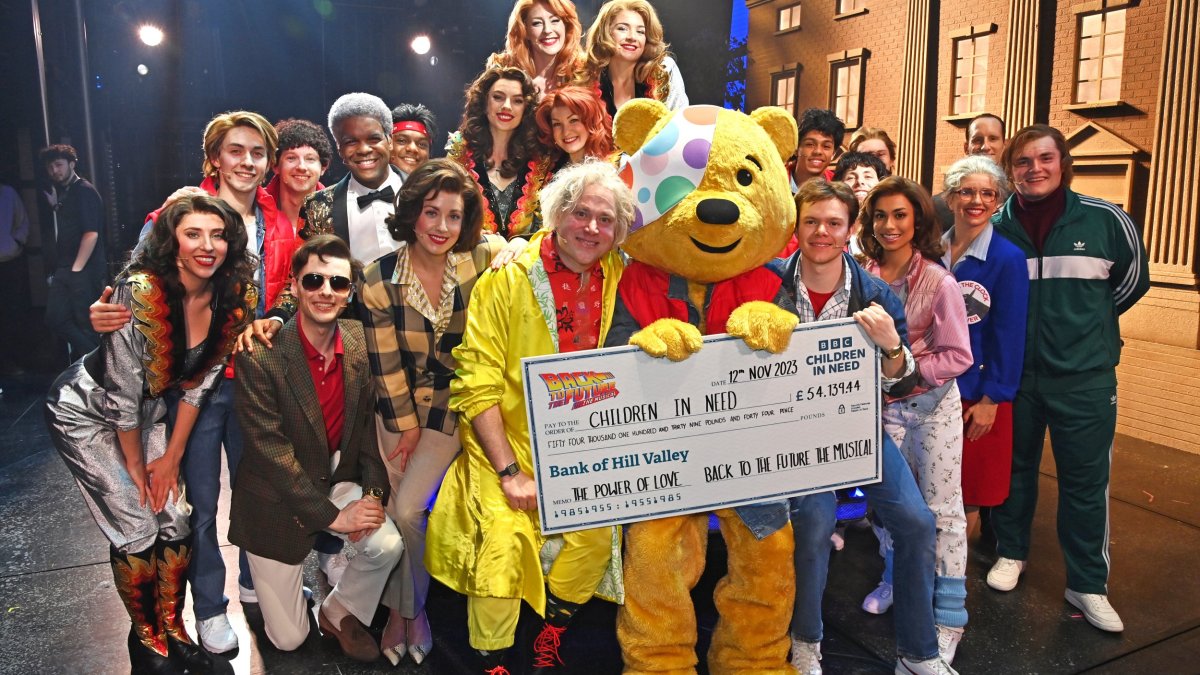![]()
I want better for my children’s generation and the generations after.
November 17, 2023 2:11 PM (Updated November 18, 2023 10:35 AM)
When I was a kid, we all wore yellow to school on Child Support Day. We colored in pictures of Pudsey Bear and rang red buckets so parents could drop coins in when they dropped off and picked up their kids. I watched awkwardly as the adults around me talked about fundraisers, charity drives, and “thinking of poor children.” People used words like “disabled,” “incompetent,” and “powerless” to describe kids from the disability community like me.
That night, along with millions of others, I watched a three-hour TV spectacle filled with a montage of children with disabilities, accompanied by saccharine music and empathetic narration about how we are all brave and special, and yet so helpless. I listened to presenters, celebrities, and caregivers dramatically reveal the medical diagnoses of the children on-screen, likely to elicit public sympathy and pocketbook support, often without the children’s consent.
As a kid, I didn’t have the words to explain how Children In Need made me feel, but now I do.
I felt exposed, marginalized, pitied and belittled. I felt sad, frustrated and angry that children with disabilities were being featured on television and talked about in such a depressing and callous way. The show dehumanized the children while simultaneously appealing to the humanity of the audience.
The disability charity model, which sees disabled people as objects of pity, would have you do that.
Charities always find a way to make people feel compassion for certain groups of people while reminding us of their bravery in surviving in this tough old world (by the way, now that you’re so touched, would you like to make a one-off donation or set up a direct debit?).
Here’s my radical opinion: Kids with disabilities aren’t brave just because they have a disability. They’re not superheroes because they smile their way through their pathetic little disabled lives (which are certainly not pathetic lives). They’re not broken, they’re not helpless, and they certainly don’t need anyone’s sympathy. They have hopes and dreams, passions and hobbies, just like kids without disabilities. They’re beautiful and silly and fun and smart and excite us, just like kids without disabilities.
Read next

Children’s private lives should not be exposed to public scrutiny in order to get what they need to live a quality life. It is our government’s responsibility to look after the vulnerable in this country, and that includes children with disabilities.
Children in Need exists because governments have systematically and historically failed to provide children with disabilities with access to the facilities and support systems they need. It is not up to the public – a public facing a devastating cost of living crisis – to dig deep and raise the funds for specialist support, access to social organisations, education, adaptation, respite care, whatever it may be.
I believe that every child deserves dignity, respect, and privacy, but somehow, children with disabilities never seem to be afforded the same level of benefits in this country. It’s easy to see why: our government demands every painful detail of the societal barriers they face in exchange for disability benefits and support. Children with disabilities are taught from an early age that their needs must be explained and justified. As parents, we must share endless medical evidence to ensure our children have access to the quality of life that non-disabled people have access to without question.
As a parent of two children with disabilities, I have been forced to face the uncomfortable reality that I am constantly expected to divulge my children’s needs and medical information to me, often without their consent and often without their knowledge. I have failed at this many times, and am tolerant of others who do the same. It’s painful to go against what is so commonplace in society.
But I remember as a young child watching other disabled kids being made into objects of pity on TV, hearing celebrity narrators recount these kids’ diagnoses, and how uncomfortable it all made me. I remember being asked countless times as a child about the type of dwarfism I had and “how” it made me disabled. “How fast can you run?” “Have you had surgery?” “Will you ever be taller?” “Are you really disabled or just short?” The questions were endless. Strangers’ sense of entitlement never made me feel good.
I want better for my children’s generation and the generation after that. Children with disabilities don’t deserve pity, they don’t need help, and they don’t deserve to be questioned. They deserve independence and privacy, and a government that does everything in its power to make sure they get the help they need.
As a very wise man Commented on my Twitter thread I said this yesterday about this: “People give £10 to Children in Need and then go on to vote for parties that impoverish children.”
Let’s think about this at the next election.
Kathy Ray is a freelance journalist covering disability politics, culture and entertainment.

